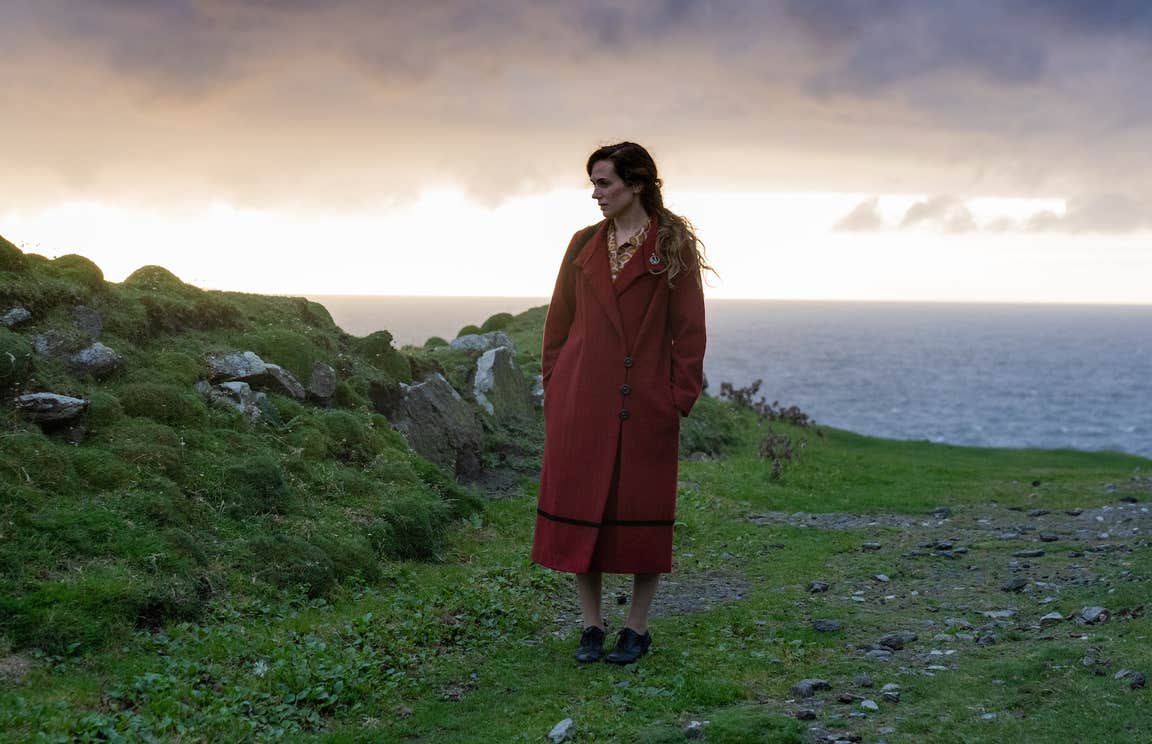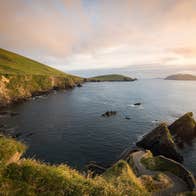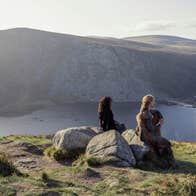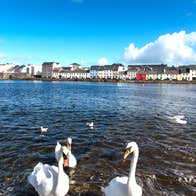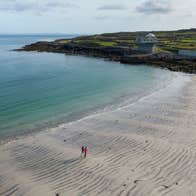Keem Bay plays a key role in the film’s much-praised scenery. Brendan Gleeson’s character Colm Doherty lives in a cottage overlooking the bay and the pretty beach at the heart of it. Many key conversations between Colm and Colin Farrell’s character, Pádraic, take place here, including the film’s final scene.
Keem Beach is a regular on many a list of Ireland’s most beautiful beaches, and while it’s unlikely that you’ll run into Brendan Gleeson here, basking sharks and dolphins are occasional visitors. Take a walk and enjoy the views with a friend any time of year.
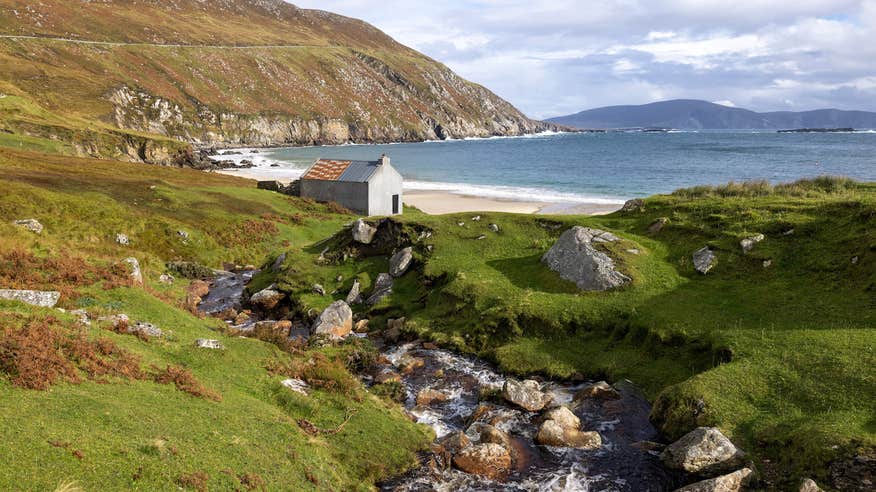
In The Banshees of Inisherin, the mysterious Mrs McCormick lives at the edge of a lake which is also the setting for some of the film’s most tragic moments. But there’s nothing ominous about the real Corrymore, a glacial corrie lake formed in the ice age which is one of the island’s most beautiful spots. In nearby Dooagh is the Achill Archaeological Field School, which has all the details of the lake’s origins – as well as a fascinating exhibit on the Deserted Village at Slievemore. The school also offers guided tours from April through to September, excavating the island’s ancient past.
The pub that houses so many scenes in The Banshees of Inisherin doesn’t actually exist. ‘JJ Devine’s’ was built from scratch by the film crew in Cloughmore and dismantled soon after filming was done, and while there’s an ongoing campaign to have the pub rebuilt as a tourist attraction, those fond of an island drop will have to go elsewhere for now.
Irish-owned and family-run, the Achill Island Distillery welcomes visitors, with guides going through the distilling processes from barley to barrel. The copper pot stills can be seen up close and personal, with tours ending with a few samples. Though Colm and Pádraic prefer a stout, the distillery still offers a taste of Achill – it’s also across the road from the Achill Heritage Centre in Bunacurry. Before or after a tipple, visitors can take in hundreds of years of the island’s history.
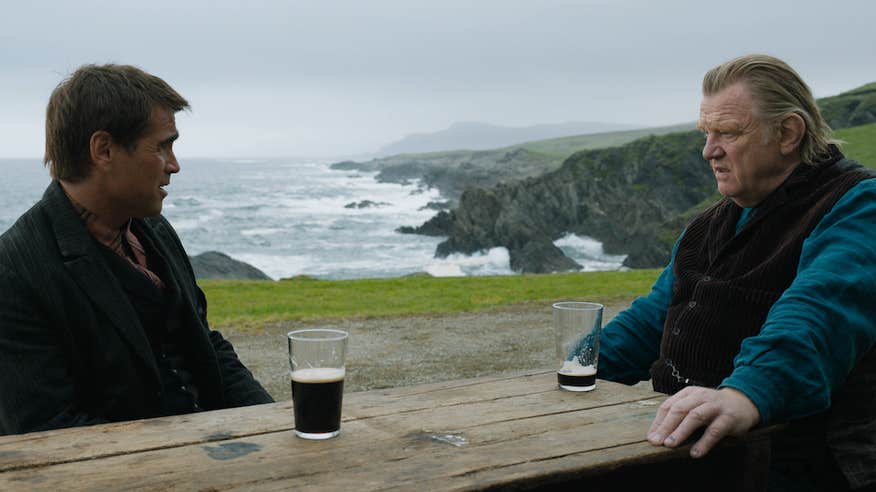
The peaks of Slievemore overlook St Thomas’ Church in Dugort, a 170-year-old church that was used for both exterior shots of Mass on Inisherin and a few interior church shots too. St Thomas’ Church is an active Church of Ireland building only open to the public for services, but its impressive stone exteriors can be taken en route to Achill’s big mountain.
The Slievemore Tour is a guided walk provided by Achill Isle Walks. On several walks that suit all levels of fitness and experience, you’ll get local insights on the island’s culture, history, flora and fauna from tour guide Gerard Mangan. The five-hour trek up Slievemore itself takes in the Deserted Village, while the views from the top on a clear day reach as far as Benbulben in County Sligo.
At the foot of the mountain, Dugort Beach is a popular spot with families, swimmers and surfers.
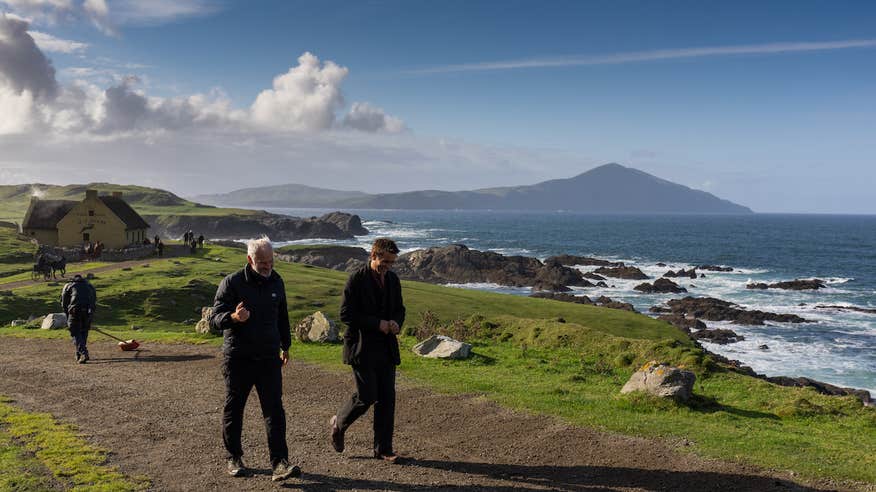
The dramatic cliff edge that the prehistoric stone fort of Dún Aonghasa sits on provides a backdrop to scenes between Pádraic and Barry Keoghan’s character Dominic. The 3,000-year-old structure can also be seen in the distance of Pádraic and his sister Siobhán’s cottage, another spot that can be visited in nearby Gort Na gCapall.
The fort combines an informative tour with a brisk hike – appropriate gear and boots are recommended to take on the uneven terrain.
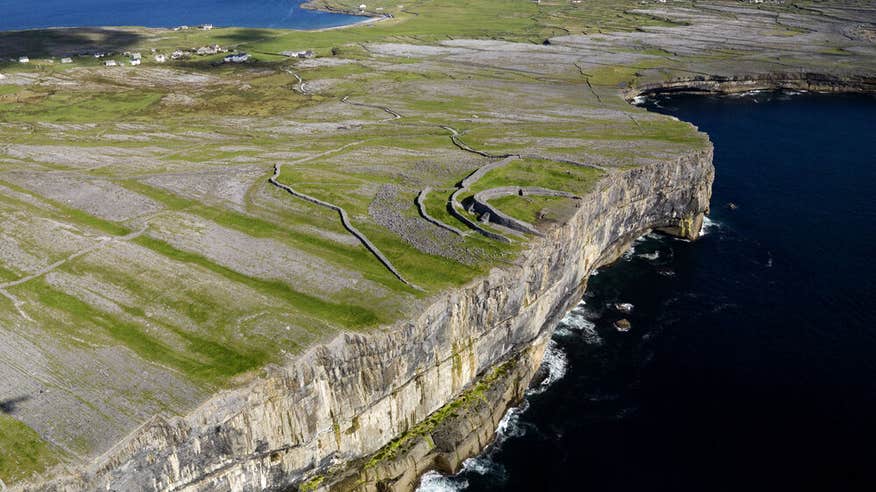
Martin McDonagh’s film has received plenty of praise for its costuming, which was the work of costume designer Eimer Ní Mhaoldomhnaigh. She only used Irish wools, linens and overdyed fabrics, and entirely homespun fabrics for the film to recreate the traditional knitwear of Aran that is famous throughout the world.
The Aran Sweater Market at the Pier in Inis Mór is a perfect place for visitors to pick up their own homespun threads. Knitting ladies from the Aran Islands and the mainland keep the islands’ crafting traditions alive and provide a range of clothing and home crafts.
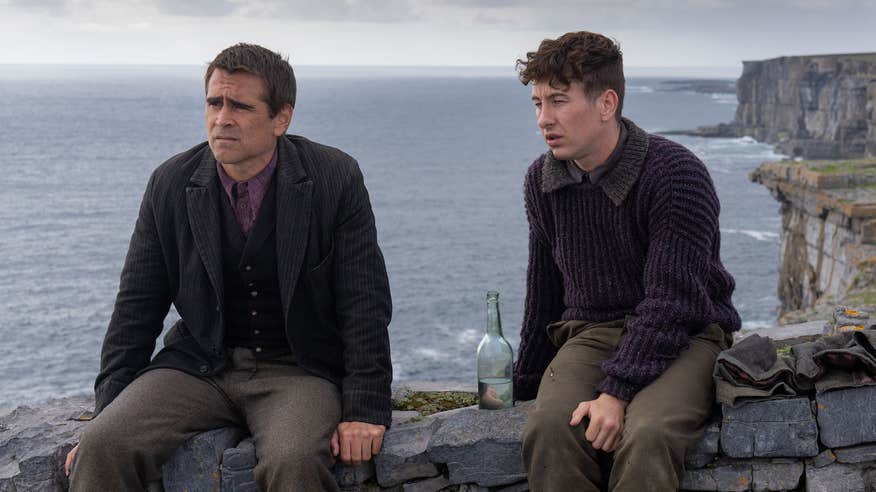
The animals of Inisherin are a big part of how the film has won the hearts of audiences. Pádraic’s donkey Jenny is more of a house pet than anything, but he and other island inhabitants still get about via traditional pony and trap carts. Propping Pádraic up on a cart to take him home is one of Colm’s few conciliatory moments with his former friend.
An Inis Mór native offers similar traditional travel. Thomas Faherty's Aran Pony and Trap tours take in many of the sights, again providing local insights on the monastic sites, seal colonies and stone forts across the island.
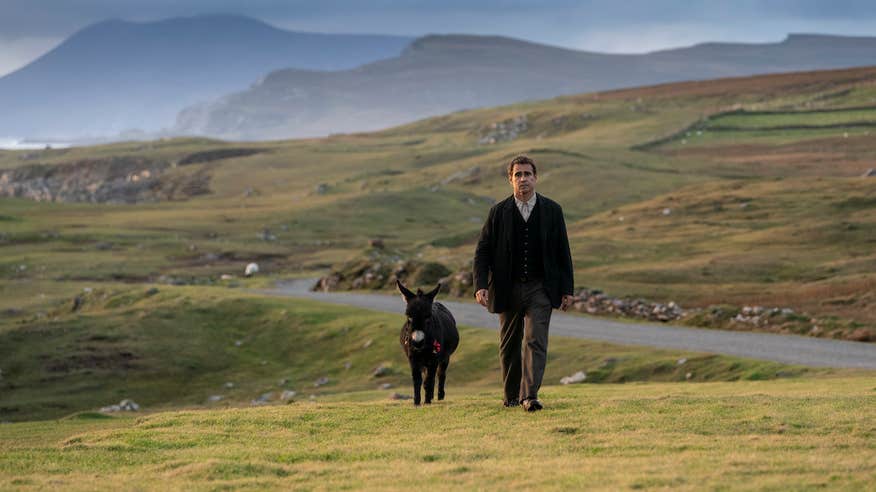
Interested in how Ireland is represented on the big and small screen? Explore our guide to the country’s best-known locations for film and television.
